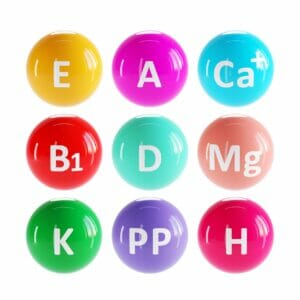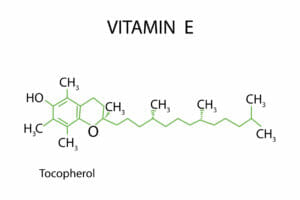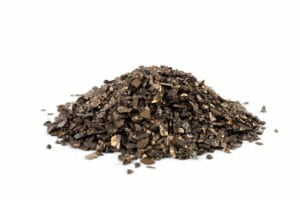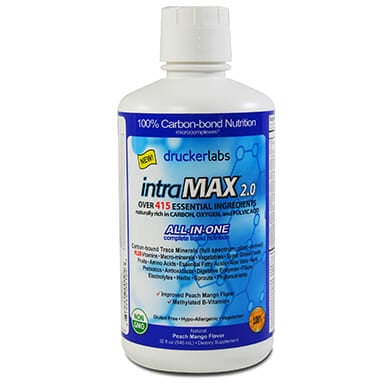What Nutrients Do I Need Daily?

Here are the essential nutrients our body needs daily. The RDA’s are established by the Food and Nutrition Board for the National Institute of Health and are meant to cover the nutritional needs of around 97% of healthy adults.
Keep in mind there can be considerable differences in the RDA of nutrients depending on your stage of life (older people sometimes need more or less of a nutrient) and gender (pregnant or lactating women often need more of certain nutrients).
Table of Contents
Vitamin A
Vitamin A is essential for vision, as the retinic acid form of it helps transmit light through neural pathways to the brain. It also plays a key role in developing embryos and immune function. (1) In adults, the RDA is 900 mcg for men and 700 mcg for women with an upper limit of 3,000 mcg (10,000 IU).
Vitamin B
There are eight B vitamins, all of which are nutrients we need daily. Folic acid (B9) is especially important to pregnant women as it may prevent birth defects (2), with 400mg a day the most commonly recommended dose. Riboflavin (B2) is involved in energy production and acts as an antioxidant (3). The RDA for adult males is 1.3 mg a day and 1.1 mg a day for women. Niacin (B3) is important for DNA repair (4). The RDA for men is 16 mg and for women it is 14 mg. The upper limit of 35 mg was established to prevent a very rare side effect of skin flushing. B6 is essential to the function of over 100 enzymes, immune function, and brain health (5). The RDA is 1.3 mcg and there is not a recognised upper limit. Vitamin B12 is necessary for the formation of red blood cells and in brain and nerve function (6). Since most food sources of B12 are animal derived, vegetarian and vegan diets are linked to a vitamin B12 deficiency and the CDC recommends supplementation. The RDA is 2.4 mcg a day and since the body excretes what it doesn’t need, there is no upper limit established.
Vitamin C
A powerful antioxidant, vitamin C is also used to: repair cartilage, heal wounds, form a protein used to make skin, and help the body absorb iron. The body doesn’t make or store vitamin C so it is a vitamin and nutrient we need daily (7). Men need 90 mg a day and women need 75 mg. If you smoke you may need up to 35 mg/day extra, as smoking interferes with the body’s absorption of Vitamin C.
Vitamin D
Vitamin D helps the body absorb calcium, which is important for healthy bones. It is one of the few vitamins your body makes—when skin is exposed to sunlight vitamin D is synthesised. If you wear sunscreen or spend a lot of time indoors, your skin will not make this important vitamin. Few foods naturally contain vitamin D and so fortified foods or supplements are often recommended (8). Adults are often recommended to take 15 mcg (600 IU), with those over 70 the recommendation changes to 20 mcg (800 IU) with an upper limit of 100 mcg (4,000 IU). Your body will not make more vitamin D than it needs, no matter how much sunlight you’re exposed to.
Vitamin E

Vitamin K
Vitamin K acts together with various proteins to help coagulate the blood after a skin puncture. It is also commonly associated with bone health, although the exact link is not currently established (10). RDA is 90 mcg a day for women and 120 mcg a day for men. There is no upper limit set due to the fact that no adverse events have been linked to vitamin K in humans or animals.
Calcium
The most abundant mineral in the body, calcium is essential for bone health, the contraction of muscles, the secretion of hormones, and the nervous system. Calcium is found in many foods including dairy, green leafy vegetables, and in fortified foods (11). Adults need 1,000 mg a day but 1,200 mg a day is recommended if you are over 70, due to its importance in bone health.
Iron
Iron is essential for the transport of oxygen throughout the body’s tissues. It is a building block or component of many essential proteins, enzymes and haemoglobin (found in the blood). Iron deficiency anemia has been linked to poorer pregnancy outcomes as well as cognitive impairment in children. The RDA for adult men of all ages and women over 50 is 8 mg and for women between the ages of 19 and 50 it is 18 mg. The upper limit is 45mg a day for adults, 40mg daily for children.
Iodine
Iodine is essential for healthy thyroid function and is considered essential for life. Iodine is needed for the formation of thyroid hormones that are in turn responsible for regulating various enzyme and metabolism processes. The RDA for men and women over 19 is 150 mcg with an upper limit of 1,100 mcg.
Magnesium
Important for regulating blood sugar and blood pressure as well as its role in making proteins, bone, and DNA, (12) the RDA of magnesium is between 400-420 mg for men and 310-320 mg for women.
Zinc
Zinc is involved in building and maintaining proteins in the body so it is essential for growth and development. RDA is 8 mcg for women, 11 smcg for men with an upper limit of 40 mcg.
Selenium
Protecting the body from damage by free radicals, as well as playing a part in DNA production and thyroid function, the RDA of selenium is 55 mcg for all adults.
Manganese

Potassium
A mineral that acts as an electrolyte, potassium is crucial for helping your muscles contract, making your heartbeat stay regular. Both men and women should get around 4,700 mg of potassium.
Omega Fatty Acids
While Omega 3 fatty acids are not a strictly essential nutrient, they cannot be made by the body and need to be taken in through the diet. There is no RDA for them, they are found throughout the body in eye, brain, and sperm cells and may be important for the immune and endocrine systems as well as heart and blood vessel function.
Drucker Labs 100 percent organic all-in-one liquid vitamin not only contains all of these vital nutrients, it also includes trace elements and amino acids to support peak function of your body. It’s liquid formulation is easily absorbable, with a higher bioavailability than others and it is loaded with antioxidants. With over 415 ingredients you’ll have the question of “what nutrients do I need daily” answered in just one bottle!

Click Here to take a closer look at Drucker Labs IntraMAX on our website!
Thank you for taking the time to read What Nutrients Do I Need Daily?
Please note: All information presented to you in this website is intended for your general knowledge only and is not a substitute for medical advice or treatment for specific medical conditions. We cannot, and will not give you medical advice. We strongly recommend you consult your physician for any and all specific health issues. If you have any questions or contributions, please contact us via email or phone-call. We are constantly looking for new information to promote wellness – and hearing from you would make our day.
Live Vibrantly!



